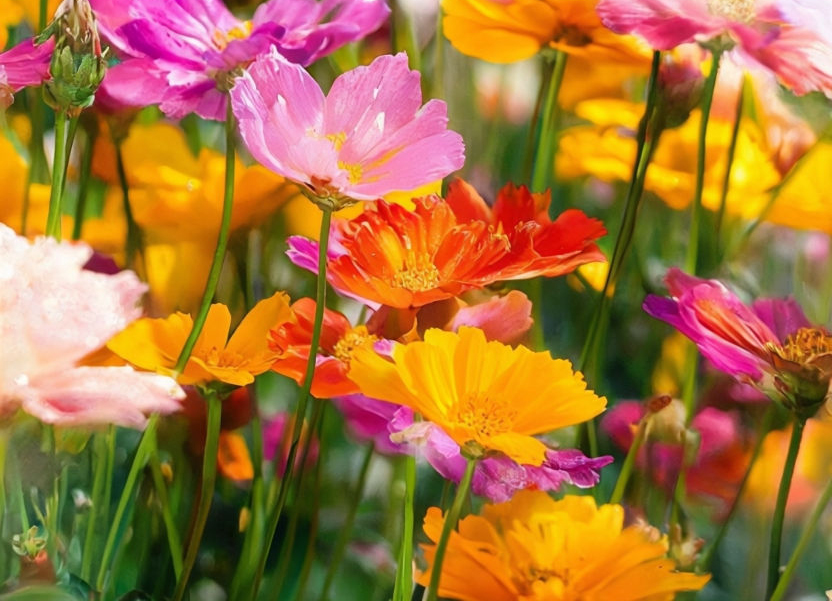
-
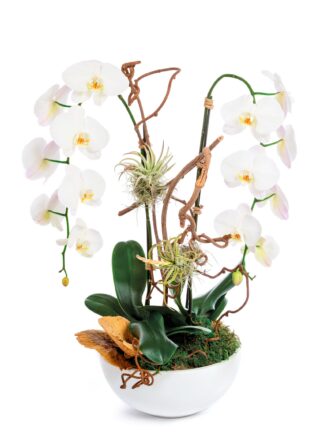
Harmony
$150.00 Select options -
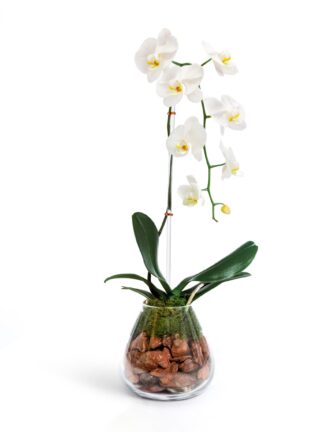
Cascading White Orchid
$90.00 Select options -
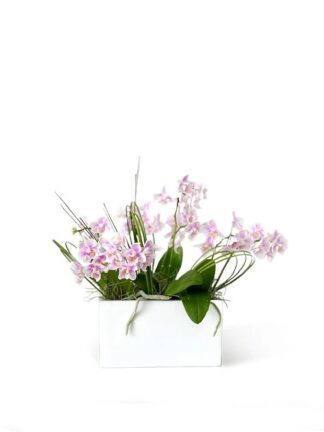
Audrey
$145.00 Select options -
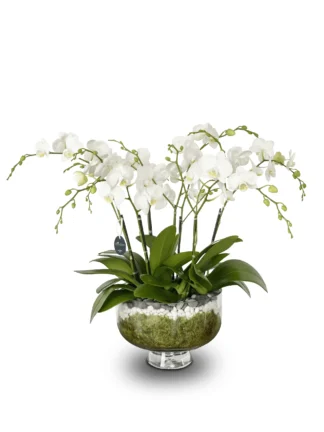
Serenity
$195.00 Select options -
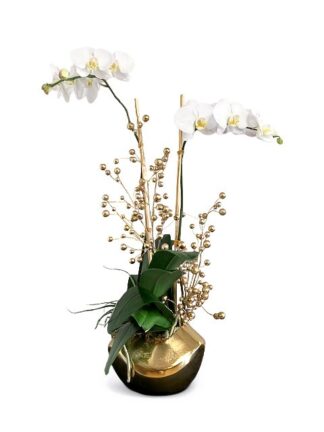
Madison
$150.00 Select options -
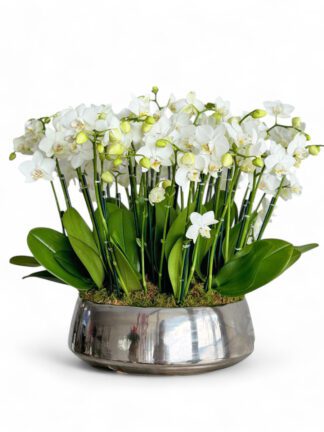
Silver
$265.00 Select options -
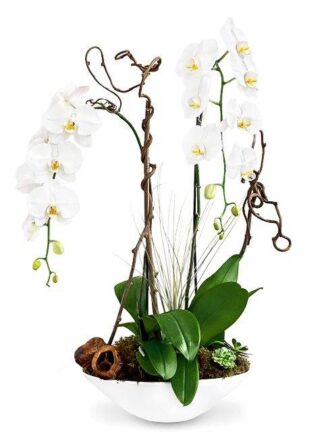
Vivian
$150.00 Select options -
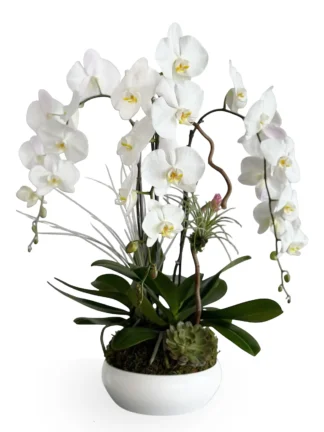
Pure Perfection
$195.00 Select options -
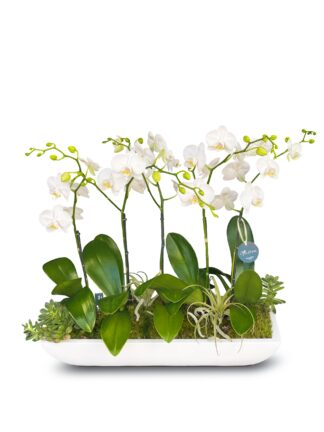
Mini Jungle
$205.00 Select options -
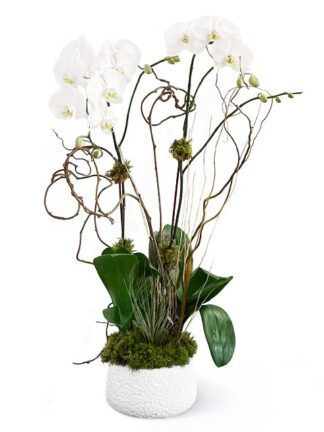
Zoe
$150.00 Select options -

Samara
$150.00 Select options -
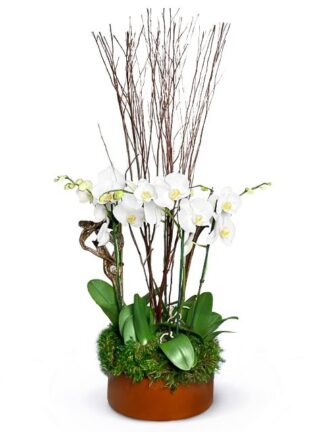
Splashing Beauty
$350.00 Select options -
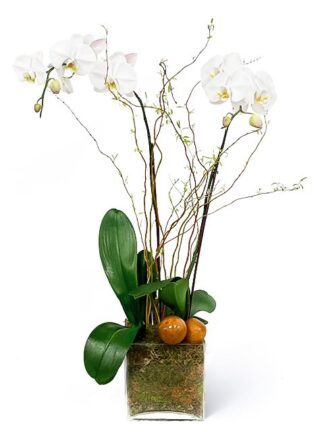
Olivia
$150.00 Select options -
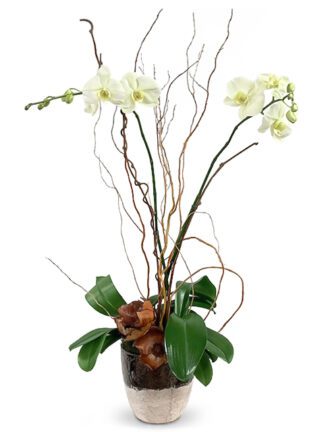
Joy
$150.00 Select options -
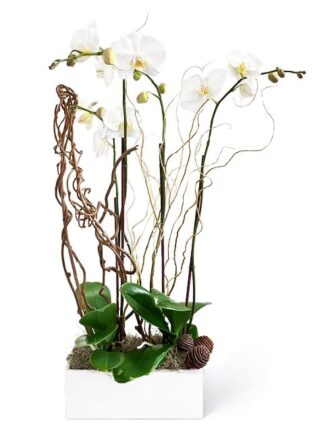
Victoria
$210.00 Select options -
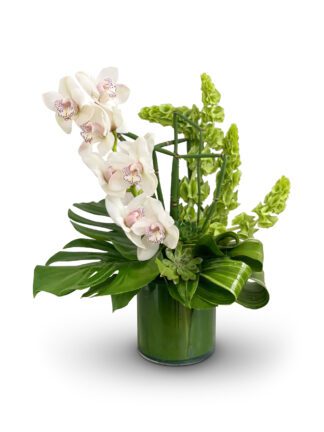
Elegance in Green
$130.00 Select options
Rosh Hashanah, known as the Jewish New Year, holds profound religious, cultural, and historical importance within the Jewish community. As one of the most significant holidays in the Jewish calendar, Rosh Hashanah marks the beginning of the High Holy Days, a ten-day period of introspection, repentance, and renewal that culminates with Yom Kippur, the Day of Atonement. This period is an opportunity for individuals to reflect on their actions over the past year, seek forgiveness, and make resolutions for improvement in the coming year.
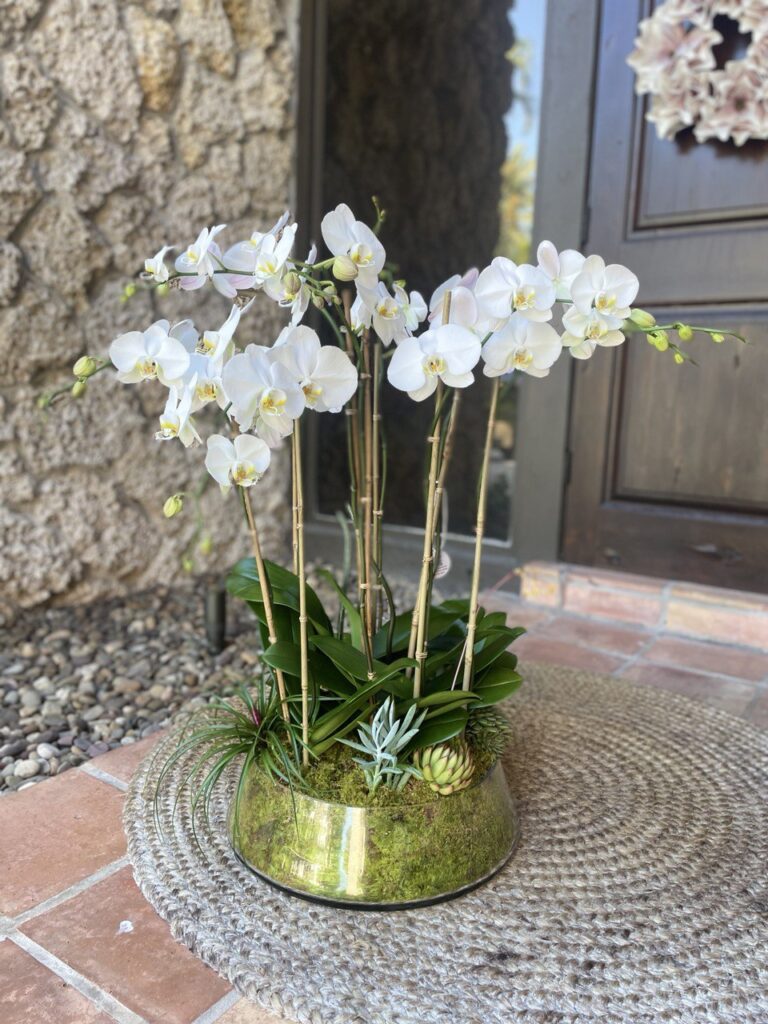
Central to the observance of Rosh Hashanah are several traditional customs that hold deep symbolic meaning. One of the most distinctive rituals is the blowing of the shofar, a ram’s horn, which serves as a call to repentance and a reminder of the need for spiritual awakening. The shofar’s sounds—tekiah, shevarim, teruah, and the final tekiah gedolah—are meant to stir the soul and inspire a commitment to personal growth and ethical living.
Moreover, Rosh Hashanah is characterized by special prayers known as the Machzor that are recited in synagogues. These prayers include the recitation of the “Unetaneh Tokef,” a prayer that emphasizes the themes of God’s sovereignty and the judgment of human deeds. The liturgical additions emphasize themes of reflection and accountability, fostering a communal spirit geared towards self-improvement.
Festive meals play a pivotal role in Rosh Hashanah celebrations. Symbolic foods such as apples dipped in honey are consumed to express hopes for a sweet and prosperous new year. Pomegranates, representing abundance, and round challah bread, symbolizing the cycle of the year, are also traditional staples during the festive meals. These culinary customs add a tangible element to the holiday’s themes of renewal and hope.
Overall, Rosh Hashanah is a time for individuals and communities to come together in a spirit of reflection, rejuvenation, and growth, setting the tone for the spiritual journey that lies ahead.“`html
Symbolism of Flowers in Rosh Hashanah Celebrations
Rosh Hashanah, the Jewish New Year, is a time for renewal and reflection. Flowers play a significant role in these celebrations, serving as a poignant symbol of the themes central to the holiday. The natural beauty and cyclical nature of flowers resonate deeply with the concepts of renewal and the perpetual cycle of life associated with Rosh Hashanah.
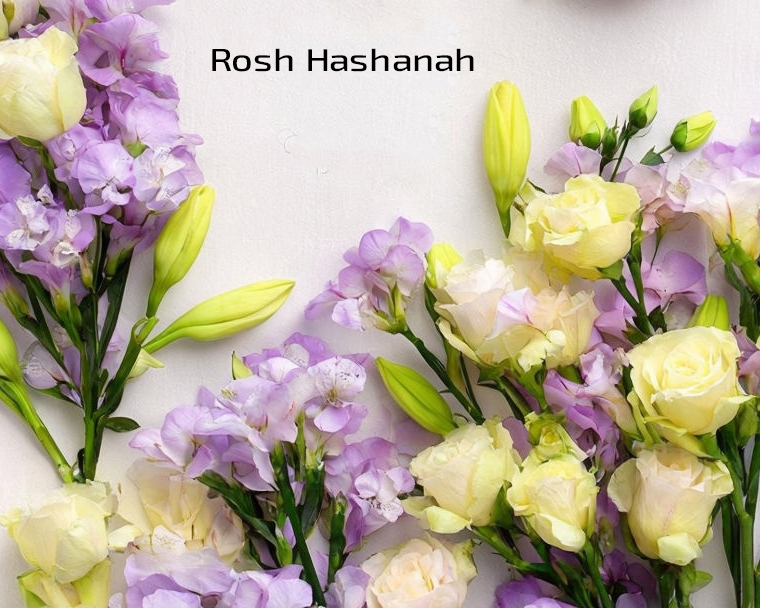
White lilies are often chosen for their pristine appearance, representing purity and spiritual renewal. These elegant blooms are a reminder of the fresh start Rosh Hashanah offers, encouraging individuals to purify their thoughts and actions as they step into the New Year. Similarly, roses, with their captivating beauty and fragrant aroma, symbolize love and beauty, essential ingredients for a harmonious and joyous new beginning.
Pomegranates are another popular choice for Rosh Hashanah, favored for their rich symbolism of abundance and prosperity. Each pomegranate contains numerous seeds, traditionally believed to represent the 613 commandments of the Torah, embodying a year filled with good deeds and blessings. This abundant nature of the fruit aligns perfectly with the hopes for a bountiful year ahead.
In addition to these specific flowers, many also incorporate orchids into their Rosh Hashanah decor. The delicate yet resilient nature of orchids reflects the intricate balance of beauty and strength required to navigate the complexities of life. This unique characteristic makes orchids a fitting emblem for the aspirations of growth and continuity celebrated during Rosh Hashanah.
Through the thoughtful selection of flowers, the essence of Rosh Hashanah is vividly brought to life. These floral arrangements not only enhance the aesthetic appeal of the celebrations but also serve as meaningful reminders of the values and hopes embraced during this significant time. Thus, the integration of flowers into Rosh Hashanah observances beautifully underscores the holiday’s themes of renewal, love, prosperity, and enduring beauty.
Creating a Festive Atmosphere with Floral Arrangements
Rosh Hashanah, the Jewish New Year, is a time for reflection, renewal, and celebration. One way to enhance the festive atmosphere of this significant holiday is by incorporating the beauty of flowers into your decorations. Whether for home decoration, synagogue embellishment, or dining table centerpieces, floral arrangements can add a touch of elegance and vibrancy. Selecting the right flowers and arrangements can elevate the occasion, making it meaningful and memorable.
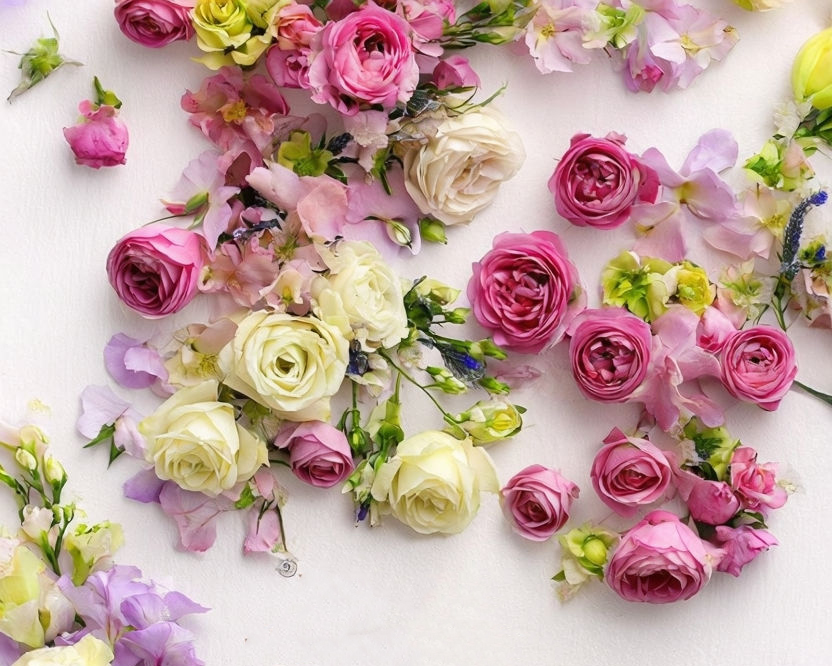
When creating floral centerpieces for the dining table, consider using flowers that bloom during the early fall season. Orchids, with their exquisite and varied color palette, can be an excellent choice. Their sophisticated appearance can complement other traditional Rosh Hashanah elements like honey, apples, and candles. Combining orchids with roses or lilies can make a striking centerpiece, perfect for stimulating heartfelt conversations around the holiday table.
For a cohesive look, embrace a color scheme that reflects the themes of Rosh Hashanah. White blossoms symbolize purity and new beginnings, while gold and red accents represent prosperity and joy. Pearly white chrysanthemums or lilies intertwined with touches of red roses and sprigs of gold-colored twine can create a visually appealing and symbolic arrangement that honors the spirit of the holiday.
In addition to table centerpieces, consider crafting floral wreaths to hang on doors or walls. These can feature seasonal blooms like marigolds or sunflowers, which can be harmoniously blended with elements such as eucalyptus leaves or hypericum berries to create a lush and inviting display. Adding small decorative items like honey dippers or artificial apples can further highlight the holiday’s symbols of sweetness and growth.
It’s crucial to ensure the flowers you select are fresh and long-lasting, allowing them to maintain their beauty throughout the holiday. Keep blooms in water-filled vases and out of direct sunlight, and trim stems diagonally to promote water uptake and prolong their vitality. With thoughtful preparation and creativity, floral arrangements can significantly contribute to the joyful essence of Rosh Hashanah, blending seamlessly with time-honored traditions to enrich the celebration.
Gifting Flowers for Rosh Hashanah: Thoughtful Ideas and Etiquettes
Gifting flowers during Rosh Hashanah is a meaningful way to convey good wishes and blessings as the Jewish New Year begins. Flower gifts are appreciated for their beauty and symbolism, often representing new beginnings and hope. When selecting flowers for friends, family, or hosts, consider the preferences and symbolic meanings that may enhance the gift’s significance.
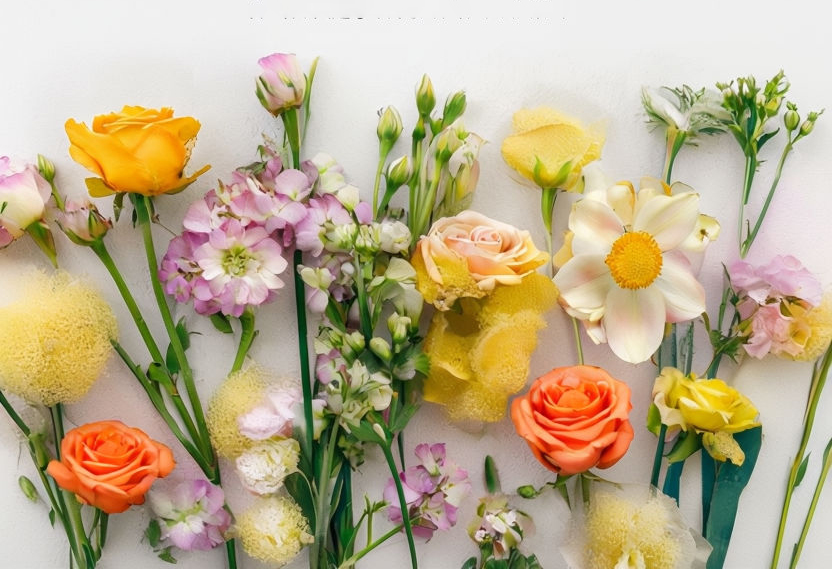
Orchids, known for their elegance and longevity, make a refined choice for Rosh Hashanah. Their resilience can symbolize enduring relationships and new beginnings. Moreover, orchids are available in various colors, each carrying unique connotations, such as white orchids for purity and yellow orchids for joy and friendship.
Traditional floral arrangements featuring vibrant colors like red, gold, and white are popular for Rosh Hashanah. These colors can symbolize prosperity, joy, and purity, aligning well with the themes of the holiday. Arrangements might include seasonal flowers such as chrysanthemums, roses, and sunflowers, creating a festive and warm ambiance.
When presenting flowers, etiquette is essential to ensure the gesture is received warmly. Timing plays a key role; it is thoughtful to deliver flowers a day or two before Rosh Hashanah begins or on the day itself. This allows the recipient to enjoy the blooms during the holiday. Accompany your gift with a heartfelt note or greeting card, expressing your best wishes for the New Year. Personalized messages can enhance the emotional impact of the gift.
Presentation matters too. A well-arranged bouquet or a beautifully designed floral centerpiece not only brings aesthetic pleasure but also shows the care behind the gift. Consider adding decorative elements like elegant ribbons or festive wrappings that align with the holiday spirit.
Thoughtful flower gifts illustrate the depth of your regards and are an elegant way to celebrate Rosh Hashanah. By considering personal preferences, symbolic meanings, and proper etiquette, your floral gifts will surely bring joy and blessings into the lives of those you cherish.